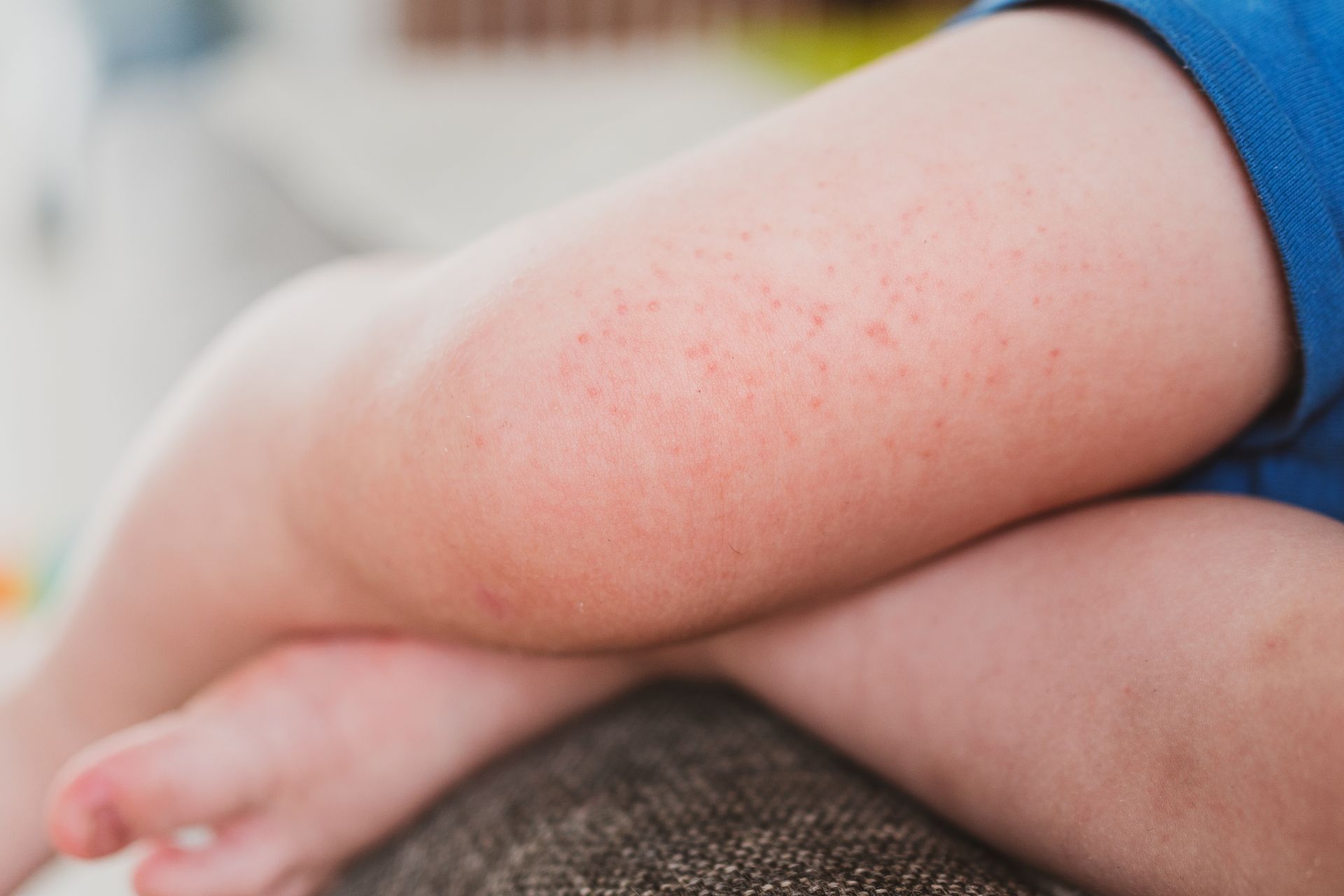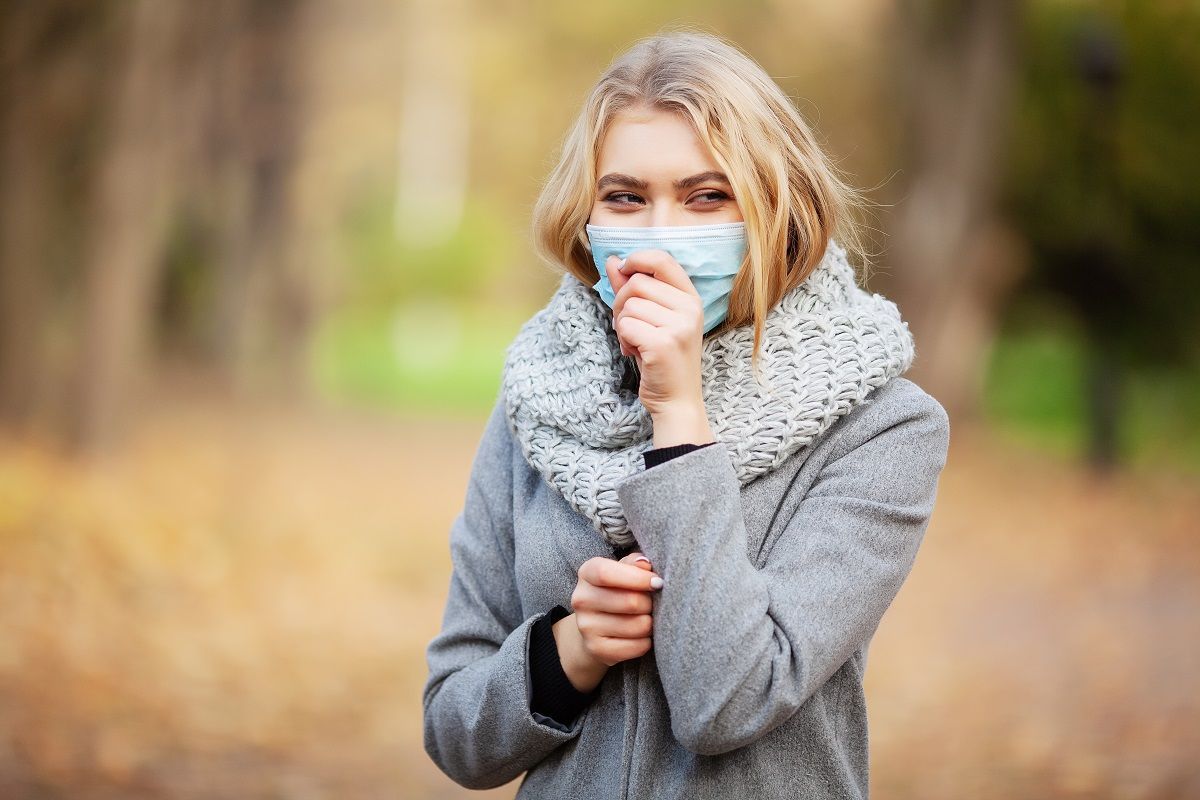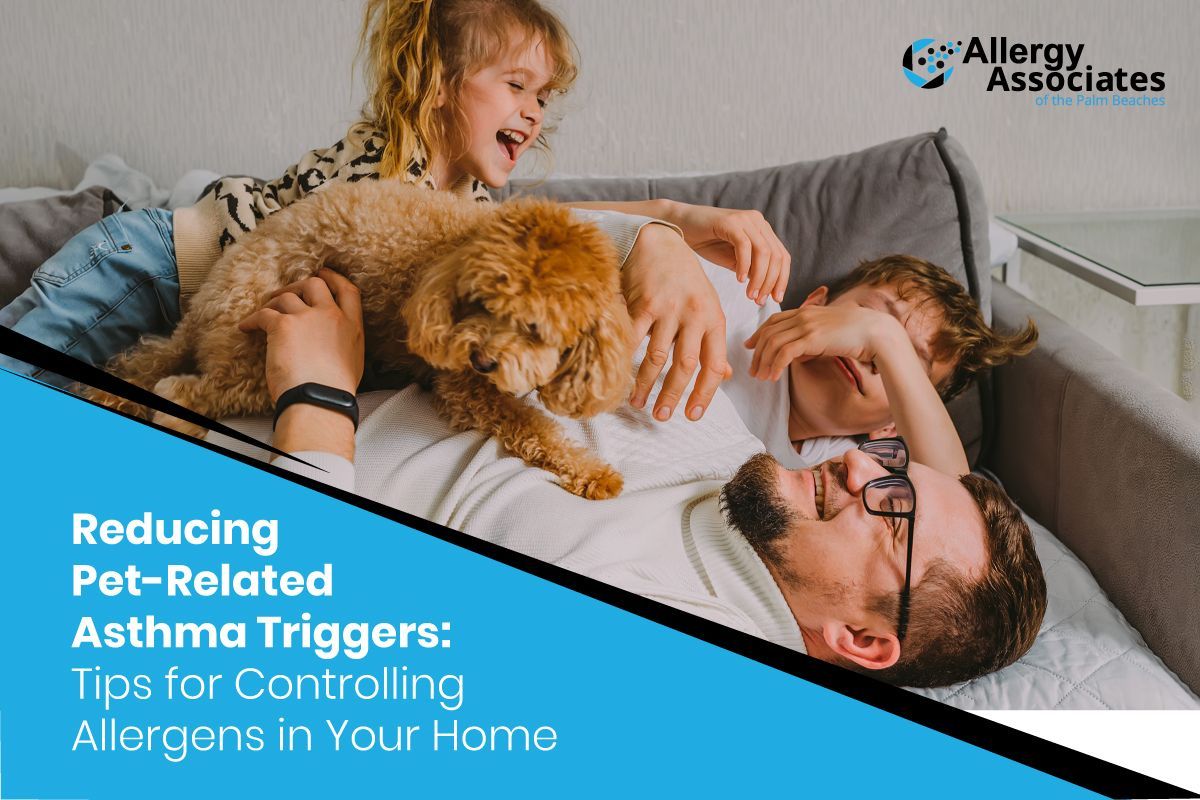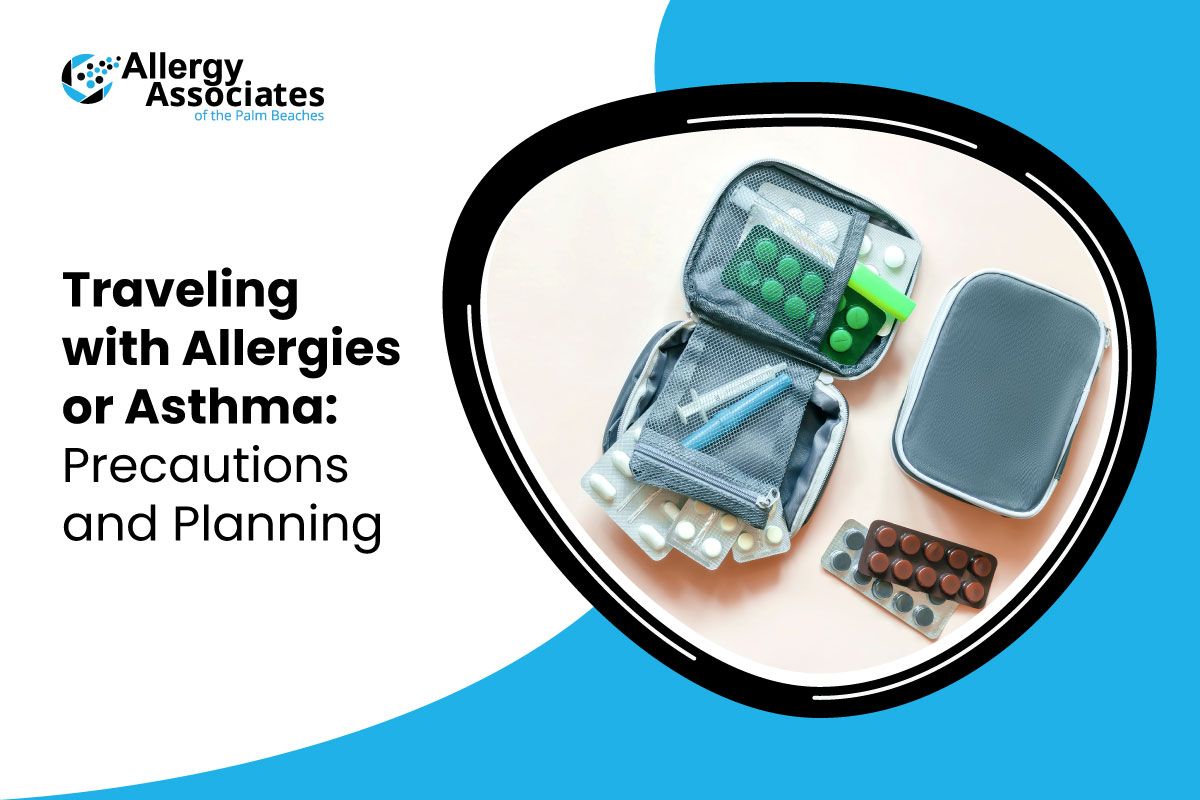In Florida, many people grapple with pet allergies in the most difficult situations. Some had to say no to moving in with a partner who owns a pet, some had to give up studying veterinary medicine, and some can only imagine what it’s like to grow up with a furry friend. Whatever scenario you find yourself in, there’s hope.
Pet allergies affect countless families across Florida, causing discomfort to humans and their beloved pets. But, in many cases, awareness and proper allergy management have helped overcome this obstacle. That’s why this blog delves into the science behind pet allergies, uncovering crucial information and sharing solutions recommended by reputable allergists. Here’s your first step to enjoying pet companionship without all the sneezing and itching.
What Are Pet Allergies?
Pet allergies are immune system reactions triggered by exposure to pet dander (dead skin cells shed by pets), saliva, or urine. These reactions are particularly prevalent in Florida, where the humid climate may create favorable conditions for allergens to thrive. When it comes to pet-related allergies, the common culprit is pet dander, which are specks of skin shed by cats, dogs, and other animals. Even pets with hypoallergenic fur produce dander, albeit in smaller quantities.
A pet allergy doesn’t mean you’re allergic to fur. You’re allergic to the proteins in the pet’s dander, saliva, and urine. These proteins cling to the pet’s hair, fur, or feathers alongside other allergens like dust mites, mold, and pollen. When these proteins come into contact with your airways, eyes, nose, mouth, or skin, they can lead to allergy symptoms.
Recognizing Pet Allergy Symptoms
Identifying pet allergy symptoms is vital for prompt intervention and effective management. These symptoms can flare up in various ways, indicating a potential allergic reaction to pet dander, saliva, or urine proteins. Here’s a breakdown of common pet allergy symptoms and how they may manifest:
1. Persistent Sneezing
When exposed to pet allergens, such as dander, individuals with pet allergies may experience persistent bouts of sneezing. This happens when the body's immune system responds to allergens, releasing histamines, which result in nasal irritation.
2. Respiratory Distress (Wheezing or Coughing)
Wheezing or coughing after interacting with animals may signal respiratory distress associated with pet allergies. Inhaled pet allergens may irritate the airways, leading to inflammation and constriction, manifesting as wheezing or coughing episodes.
3. Skin-Related Symptoms
Allergic reactions to pet dander may also manifest as skin-related symptoms, including redness, itching, or hives. Direct contact with pet allergens or exposure to airborne particles may trigger skin irritation and allergic dermatitis in susceptible individuals.
4. Ocular Symptoms
Exposure to pet allergens may also trigger ocular symptoms, such as itchy and watery eyes, redness, and swelling of the eyelids. These symptoms result from the allergens coming into contact with the eyes' sensitive tissues, leading to irritation and inflammation.
Getting Tested for Animal Allergies
In Florida, where many types of allergens thrive, understanding the specific triggers for pet allergies is imperative. Animal allergy testing provides crucial insights into the allergens responsible for triggering adverse immune reactions. Testing identifies what’s behind the symptoms and empowers pet owners with actionable information to mitigate allergic reactions.
Animal allergy testing encompasses various methods, each offering unique advantages in pinpointing allergens. Blood tests and skin prick tests are among the methods commonly employed by
allergy specialists.
Blood Tests
Blood tests, referred to as allergen-specific IgE tests, examine blood samples to identify the existence of antibodies generated as a reaction to allergens. By measuring the levels of these antibodies, known as immunoglobulin E (IgE), allergists can determine the extent of your sensitivity to various allergens, including those associated with pet dander, saliva, or other environmental factors.
Skin Prick Tests

Skin prick tests introduce small amounts of allergens into the skin through gentle pricking or scratching. The skin’s reaction to these allergens, such as redness, swelling, or itching, indicates sensitivity and helps identify specific triggers for allergic reactions. This method allows for rapid screening of various allergens, providing timely insights into potential allergic triggers.
Pet Allergy Management and Treatment Options

Addressing pet allergies requires a comprehensive strategy focused on relieving symptoms and enhancing the well-being of allergy sufferers and the pets they may encounter. Here are various pet allergies treatments that help effectively manage pet allergies:
Pet Allergy Medicine
- Antihistamines
Block histamine, the chemical your immune system releases during an allergic reaction, which causes allergy symptoms.
- Corticosteroids
Reduce inflammation in the airways, easing respiratory symptoms such as congestion and sneezing.
- Immunotherapy
Gradually diminishes the sensitivity of individuals with allergies to particular pet allergens, decreasing the intensity of allergic responses as time progresses.
- Topical Treatments
Soothe skin irritation caused by pet allergies, relieving itching and discomfort.
- Bronchodilators
Open airways to improve breathing and reduce respiratory symptoms in allergic individuals.
- Mast Cell Stabilizers
Stop the release of histamine and other substances, minimizing allergic reactions and corresponding symptoms.
- Prescription Shampoos
Reduce pet dander and alleviate skin irritation in pets, improving pet hygiene and significantly reducing the production of allergens.
Ways to Manage Pet Allergies
- Regular Grooming
Reduces dander and saliva on the pet’s fur, minimizing the incidence of allergic reactions.
- Frequent Vacuuming
Removes accumulated pet dander and other allergens from indoor spaces like carpets, upholstery, and pet bedding.
- Air Purifiers with High-Efficiency Particulate Air (HEPA) Filters
Capture airborne allergens such as pet dander, pollen, and dust mites, improving indoor air quality.
- Maintaining Clean and Well-Ventilated Spaces
Minimizes allergen-related symptoms and enhances comfort for both pets and humans.
Read More:
Reducing Pet-Related Asthma Triggers: Tips for Controlling Allergens in Your Home
Navigating Pet Allergies for a Happier, Healthier Bond with Pets!
Understanding pet allergies brings you one step closer to a harmonious relationship with animal companions. Knowing the symptoms, taking allergy tests, and implementing treatment strategies take you further, alleviating discomfort and promoting the well-being of people and their pets. Remember, effective management of pet allergies requires proactive measures, elevated by active collaboration with allergy professionals.
Empower yourself with knowledge about pet allergies! Take the first step toward a sniffle-free season by scheduling an appointment with us at
Allergy Associates of the Palm Beaches. Connect with our experienced allergy specialists to demystify your pet allergies and bid farewell to sneezing fits. Contact us at (561) 626 2006 or click the “Book an Appointment” button and drive toward better pet allergy management today!
Allergy Associates of the Palm Beaches
Allergy Associates of the Palm Beaches | All Rights Reserved.










